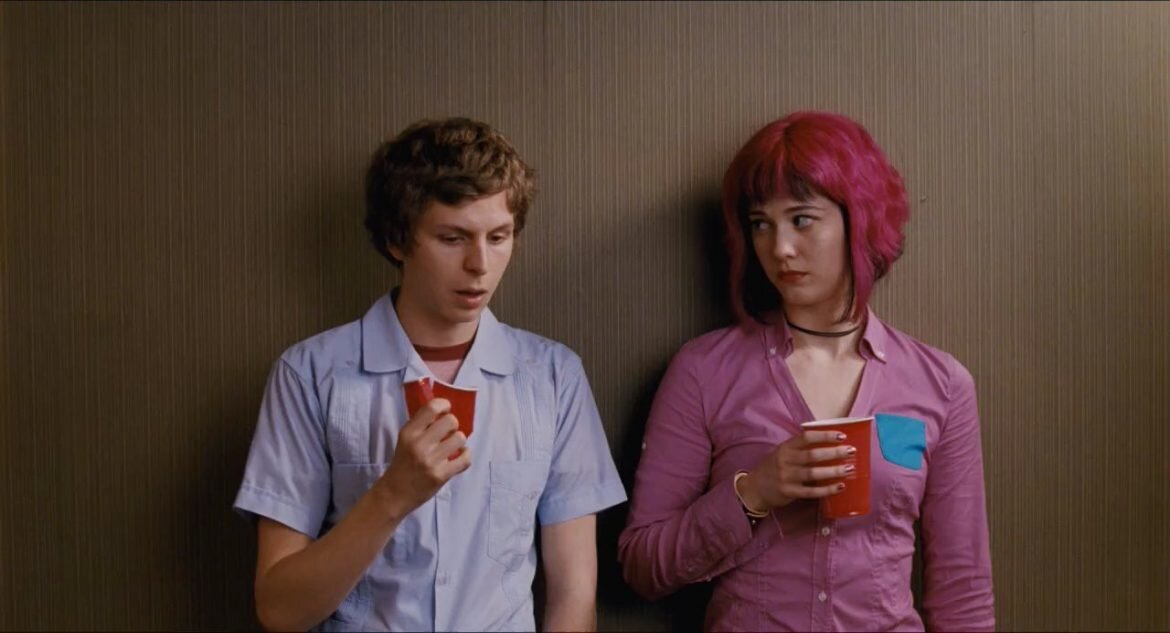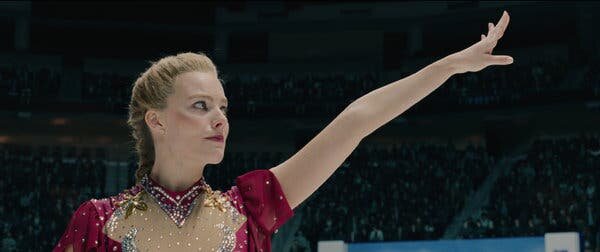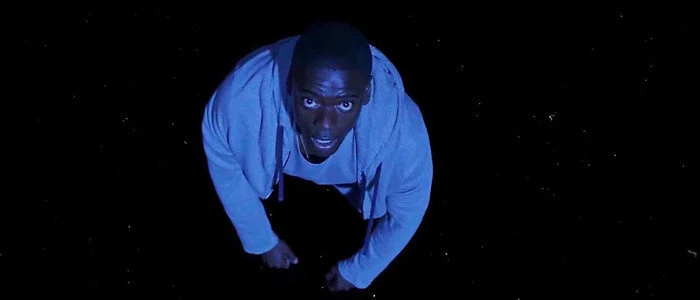The Top 10 Films of the 2010's
With 2020 approaching, MODA Blog rounds up the best, worst, and most iconic phenoms of the 2010s.
The 2010s has seen a rise in media as an aspect of culture with ever-increasing impact. Now more than ever, movies and film dictate and reflect politics, fashion, and music of our time. With this cultural impact has come a new question for the age: is cinema entertainment or art with purpose? While film houses such as A24 usher in the era of the indie film, some entertainment companies are further monopolizing the industry (see: Disney buying Marvel). And as the Oscars continue to decline in popularity, it is evident that film critique is no longer an expert skill: social media has given the consumer a newfound platform to engage with the film industry. So in this spirit of conscious viewership, it’s time to round up the top ten of the 2010s: indie films, blockbusters, coming-of-age, and horror alike.
10. Scott Pilgrim vs. The World (2010)
Image via
Just barely released during this decade, Edgar Wright’s cult classic redefined the action film, right around the rise of Marvel’s formulaic approach to the genre. What makes “Scott Pilgrim” so enjoyable is not only the star-studded cast of indie darlings and baby film-stars who all give great performances (Michael Cera himself, Aubrey Plaza, Anna Kendrick, Chris Evans, Brie Larson), but Ramona Flowers’ characterization as the antithesis of the manic pixie dream girl singlehandedly destroys the archetype that popularized rom-coms of the previous decade. Bottomline, it’s a smart film, loaded with quotable dialogue, dedicated set design, a stellar soundtrack, and it pays homage to its comic book roots.
9. Hustlers (2019)
Image via
Coming in at the tail-end of the decade is Lorene Scafaria’s heist drama about strippers during the financial crash of 2008. Starring JLo and Constance Wu, with Keke Palmer, Lili Reinhart, Cardi B, and Lizzo in minor roles, the film made waves at the box office following its release in September. It also generated some controversy, calling into question JLo’s alleged mistreatment of actual strippers she studied for her role in the movie, and the temporary loss of income the film caused for strippers at Show Palace, the actual club where many of the scenes are shot. All things considering, the film does a great job of staying faithful to the real tale it adapts from, and crafts a believable and realistic narrative of workers in an industry often deemed too explicit for media representation.
8. I, Tonya (2017)
Image via
“I was loved for a minute. Then, I was hated. Then, I was a punch line.” Craig Gillespie’s drama film recounting Tonya Harding’s story of the 1994 attack on Nancy Kerrigan for which she is most known for, as well as other pivotal moments in her career and life, is a masterpiece of the biopic genre. Elements of comedy and docufilm combine to create an honest depiction of the controversial and prolific ice skater, given a new life by the talented rising star Margot Robbie. The best part of “I, Tonya” is its reliance on an unreliable narrator. Based on “irony-free, wildly contradictory, totally true” interviews, Gillespie puts the final judgment in the hands of the viewer by recreating interview clips of key figures in Harding’s life that act as character confessionals and incorporating dialogue interjections that break the fourth wall. All in all, this is a classic underdog tale.
7. Roma (2018)
Image via
Alfonso Cuarón’s autobiographical drama was awarded the Oscar for Best Picture at last year’s ceremony, and deservedly so. The film is a period piece that follows an indigenous maid in Mexico during the political turmoil of the 1970’s. Throughout its two-hour running time, every possible thing that could go wrong in protagonist Cleo’s life does go wrong, and we are given a clear sense of her character, desires, and worries. Somewhat based off of Cuarón’s own mother, Roma crafts the narrative with a characteristic intimacy and intention, which is only further enhanced by his choice to film in black and white. This greyscale coloring goes much deeper than aesthetics; it also implies a nuance that is representative of the student-led revolution that provides a backdrop to the film, and the racial dynamics at play in the white Hispanic household Cleo cares for. Overall, this is a gorgeous film with political undertones that hint at the upheaval of this decade.
6. Heaven Knows What (2014)
Image via
The Safdie Brothers made some waves at film festivals in recent years for their most recent projects “Good Time” starring Robert Pattinson and “Uncut Gems” starring Adam Sandler. But while “Heaven Knows What” follows the similar gritty New York City tone characteristic of the Safdies’ filmography, it stands alone in its timely and honest portrayal of the opioid crisis. The Safdie Brothers paid recovering addict Arielle Holmes through rehab, in order for her to finish the book for which the film is based on. Holmes stars as herself, along with a rotating cast of junkies and panhandlers who play minor roles in Holmes’ chaotic daily life. From its exposition, “Heaven Knows What” has you always on the edge of your seat, and is a feat of the street film genre.
5. Hereditary (2018)
Image via
Since it seems like Toni Collette won’t receive her dues at the Oscars anytime soon, I’ll say it here: Ms. Toni, you’re doing great. Ari Aster’s psychological thriller about grief and (without giving away too much) family secrets stars Collette as matriarch of the Graham family, alongside Nat Wolff and newcomer Milly Shapiro. And while some were disappointed with the conclusion of the film, I think Aster does a fine job of carefully foreshadowing future events without being predictable or relying on cheap jump scares. Instead of shaming the cheesy horror of the past decade, Aster pays thematic homage to that era, making “Hereditary” a sort of pastiche. In a post-Paranormal Activity era, Aster is bringing the thrill back to the thriller genre.
4. Eighth Grade (2018)
Image via
While the 2010s have seen many a breakout features, Bo Burnham’s “Eighth Grade” stands out among the rest as a candid portrayal of children growing up in the Internet age. The film follows Kayla, played by Elsie Fisher, navigating her last week of middle school. At times painful to watch, Kayla’s journey to self-confidence lands her in situations both comical and dangerous, but all true to the social media-dominated times in which we live. A triumph of the adult comedy genre, “Eighth Grade” stands out from its predecessors, because of its underlying seriousness: Burnham covers school shootings, social anxiety, and sexual assault, all while weaving in raunchy jokes and comforting monologues from Kayla’s single dad. It is guaranteed to leave you in tears from laughter or sadness for your middle school self, seen vicariously through this awkward protagonist.
3. Get Out (2017)
Image via
You’re all probably tired of hearing about it, but the cultural impact of “Get Out” is not to be understated. Coming out of a decade where black people were always the first to die, the butt of the joke, or just flat-out nonexistent in horror, Jordan Peele reclaims the genre and gives it depth with an obvious racial commentary. “Get Out” also truly exemplified the impact of social media on marketing and blockbuster success, and what’s even more impressive is that this was Peele’s breakout film. A first of its kind “social horror,” Daniel Kaluuya is an excellent leading actor, and Lil Rel Howery provides just the right amount of comic relief for the film to remain serious, while dealing with such heavy subject matter.
2. Sorry To Bother You (2018)
Image via
Let’s make one thing clear: “Sorry to Bother You” is not 2018’s “Get Out.” Where “Get Out” is horror, “Sorry to Bother You” is absurdist. Boots Riley takes all of Peele’s racial commentary and goes one step further to craft a daring and radical film experience that criticizes late-stage capitalism. Through his not-so-subtle metaphor of WorryFree alluding to Amazon and the idea of white-voice that drives the film, Riley makes clear his political agenda, only expounded upon through sci-fi elements. “Sorry to Bother You” has many moving parts that through its nearly two-hour running time, begin to muddy; it is not easy viewing. Still, in a time where labor exploitation is only ramping up, Riley is recalling early cinematic roots in propaganda and returning film to its earlier purposeful functionality. Also, Tessa Thompson’s and Lakeith Stanfield’s Cash are excellent as a modern-day, revolutionary Bonnie and Clyde.
Moonlight (2016)
Image via
“This is not a joke. Moonlight has won best picture.” The mix-up between La La Land and Moonlight at the 2017 Oscars may have been an iconic moment in pop culture, but beyond the controversy stands a film that truly merits a Best Picture award, not only for 2017 but for the entire decade of the 2010s. With a black gay man as its protagonist, it is a love story never put to the big screen before. It is also a coming-of-age, offering representation to narratives too often stereotyped in film and TV: the black drug-dealer, in a low-income neighborhood, subject to the violence of poverty since childhood. Never before has this cliché of black men been given such visible nuance, and with such raw candor from young actors, namely Alex R. Hibbert and Ashton Sanders. Based on the unpublished screenplay In Moonlight Black Boys Look Blue, Barry Jenkins crafts this film in a stunning color palette that is a testament to his talent as a visual storyteller.
Header Image via
















